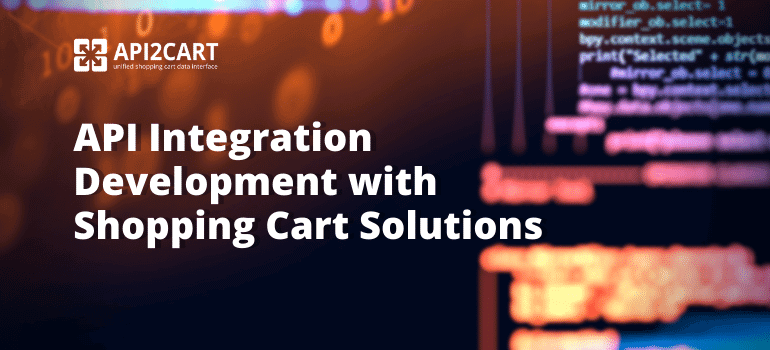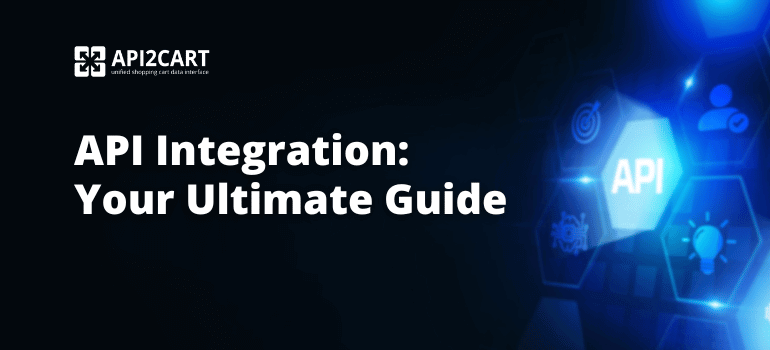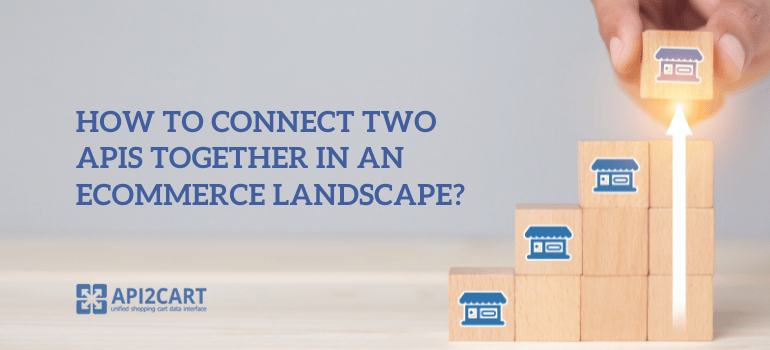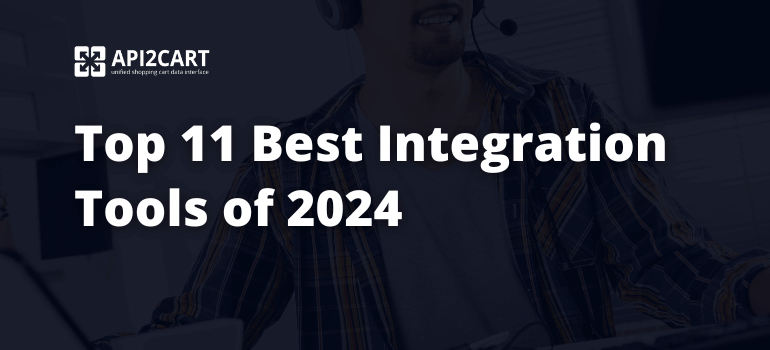
If you are an eCommerce software vendor, needless to say, the eCommerce industry is highly competitive. Thousands of vendors like you can be seen battling in the market to sell their services to e-retailers. If you want to be the industry leader in this race, API integration with eCommerce platforms is your best bet.
eCommerce integration is the process of establishing a connection between shopping platforms and eCommerce software so that the latter can easily access data from online stores based on those platforms. E-retailers have all the data related to customers, orders, products, and categories on the shopping platforms on which they have built their stores. Therefore, integration with these platforms can help you get all the data for your eCommerce software to work seamlessly.
How Does an API Work?
An API (Application Programming Interface) is a set of protocols and definitions that allow seamless data transfer between two different applications or software solutions. These applications and software can then interact with each other to meet each other's needs. One sends data to the other, and the latter uses it to provide new data based on the requirements of the previous one.

APIs work with function calls. Each API is associated with a well-defined set of function calls, determined to pull a specific set of data from the other API. For example, in eCommerce integration between eCommerce software and shopping platforms, the software sends function calls to the shopping platforms API to collect store data. The data relates to the online retailer's orders, products, customers, categories, shipments, prices, and other information that helps the eCommerce software perform its core tasks.
Therefore, the sole purpose of an API is to establish a flawless connection between two applications so that they can interact with each other for data transfer.
What are API Requests and API Responses?
API integration triggers communication between the two programs via API requests and API responses.
An API request, as the name implies, is a call to the server of the connected API to access the required data. So, it allows retrieving the data from the primary source. In eCommerce integration, the eCommerce software sends an API request to the shopping platform API to get data from the online stores.
An API response is the message sent in response from the server to the request made. Depending on the request, the API response contains a certain type of data packet that is sent back to the sender's end. The server responds to the request and then sends the needed data. For instance, the shopping platform sends an API response as requested data on orders, products, etc., to the eCommerce software.
The Aspects of API Integration in the eCommerce Sphere
API integration opens up a pool of opportunities for eCommerce software vendors. Integration between eCommerce software and shopping platforms is a path to immense profits as a software vendor.
Shopping platform integration allows you to access online stores’ data essential for providing your eCommerce software core functions. Without store data, your software is needless and cannot be used by online retailers for automating their business activity. Integration eliminates this gap and gives you a competitive advantage over other providers.
Your customers have built their stores on various eCommerce platforms and marketplaces like Amazon, Magento, Shopify, eBay, AspDotNetStorefront and WooCommerce. Each of them has a wide customer base (in the form of websites). Integrating with these platforms means inviting the same colossal customer base as your clientele. When integrating with each platform, you can get more than 100,000 prospects.
The more customers you get, the more profit you make. Shopping platforms also work with international brands, so you can expand your business abroad and tap into the markets of the eCommerce industry.
In-House Integration Development vs The Integration Via Third-Party Services
API integration development can be done in two common ways - in-house and via third-party services. While both the options are popular, you choose the wisest option!
In-house integration development
With in-house integration development, you hire an internal team of developers to build integrations for you. You need to hire, train, and on-board these developers before they start developing integrations.
You also need to consider the requirements of each shopping platform, as they all have different logic and architecture. It demands previous platforms’ investigations.
Once everything is set up, it will be the start of developing integrations one by one with each shopping platform you need. It takes weeks and months to develop a single integration, and thousands of dollars to make both ends meet.
Plus, when you've spent months developing all the integrations, you'll have to worry about updates and maintenance every time the shopping platforms release their new API versions.
Integration via third-party services
Third-party services like API2Cart allow you to sit back and relax while the service providers establish integration between your eCommerce software and the shopping platforms you need.
API2Cart is a unified API that allows you to build the integration between your software or app and more than 40 shopping platforms and marketplaces at once. No separate integrations, no infrastructure set up, no additional money and time spending, all you need to connect to API2Cart.
API2Cart provides detailed API Docs, 100+ API methods for retrieving and managing the data on orders, products, prices, etc., and flexible pricing plans.
For example, for high-volume eCommerce software vendors, API2Cart proposes Enterprise On-Premise Solution. Its usage allows to:
- get unlimited access to the data you need for your system operations from all supported 40+ purchasing platforms;
- eliminate the need to make changes every time a new version of a purchasing platform is released;
- enjoy a high level of security. Only you can control who can manage your API2Cart server infrastructure using features provided by AWS, Microsoft Azure, and Google Cloud Platform; make all requests over the HTTPS protocol;
- use premium customer support 24/7.
Conclusion
So as you can see, the better option for developing API integration is to use third-party services like API2Cart.
API2Cart offers the easiest way to integrate your eCommerce software with shopping platforms, saving significant time, money, and resources. Our unified API integration service offers you a free 30-day trial to test the product before you blindly trust it.
So, what are you waiting for? Book a consultation call with our experts today and sign up for your free API2Cart trial.



